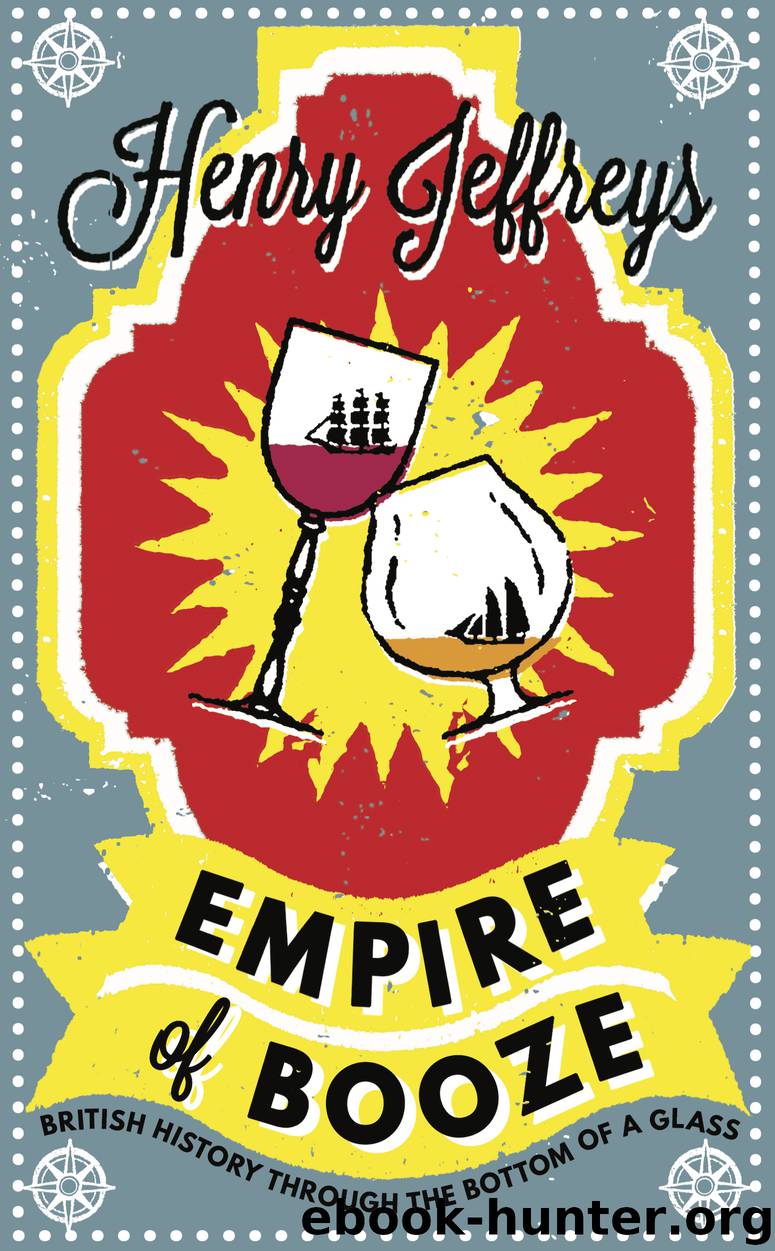Empire of Booze by Henry Jeffreys

Author:Henry Jeffreys
Language: eng
Format: epub
Publisher: Random House
Published: 2016-10-20T12:59:37+00:00
Guiness poster from 1930s designed by James Gilroy
Another example of their eye for marketing was the Guinness Book of Records. It was originally created in 1955 purely as a publicity stunt. It was not expected to make money, but it has become a hugely successful global publishing phenomenon.
I don’t find modern draught Guinness terribly exciting, but the Guinness Foreign Extra Stout is a direct link to the kind of beer that would have been brewed in eighteenth century London. It is descended from West India Porter which was first sent out to the colonies in 1801. The name was changed to Foreign Extra Stout in 1849. Brewed in Dublin for export, it’s high in alcohol at 7.5 percent and crucially contains a proportion of “stale” beer and the aged beer contains traces of the Brettanomyces yeast which give the beer its distinct almost wine-like tang. It’s a bit different from the original as it is now pasteurised and carbonated rather than being live. But it’s still a wonderful beer and probably the closest thing to an old London porter that you can buy today. Whilst Britain was in full imperial retreat, Guinness were setting up an empire of their own, based on this Foreign Extra Stout.
In 1963 the first Guinness brewery outside Britain and Ireland was opened in Nigeria. This was followed by breweries in Kenya, Uganda, Tanzania, Sudan and Somalia. There are now breweries all over Africa as well as Jamaica, Canada, Australia, New Zealand, Singapore, Malaysia and many others. Most recently, in 2000, Guinness opened a brewery in Ethiopia. The legend “Guinness is Good for You” appears in Amharic on the label. African Guinness still makes this claim which they’re not allowed to do in the rest of the world. Guinness, especially in Foreign Extra Stout form, contains a significant amount of calories so does function, like London porter, as a source of sustenance as well as refreshment. Just as in 18th century London, it is drunk in places such as Singapore by labourers who appreciate just this quality. So, in moderation, it probably is good for you. Cleverly Guinness went into partnership with local companies and employed mainly local people. Now African drinkers think of Guinness as their own. For these foreign-brewed Guinnesses, a concentrated beer called the rather unromantic sounding Guinness Flavour Extract is shipped out from Dublin and brewed with a beer made from local ingredients. Each Foreign Extra Stout is distinctly different depending on precisely where it’s brewed. The concentrate makes up roughly two percent of the total. Both the Jamaican and Nigerian versions are widely available in London and are delicious.
So while lager conquered Britain after the war, a descendent of a half-forgotten London beer quietly spread around the world thanks to the vision of an Irish brewery.
Download
This site does not store any files on its server. We only index and link to content provided by other sites. Please contact the content providers to delete copyright contents if any and email us, we'll remove relevant links or contents immediately.
101 Whiskies to Try Before You Die by Ian Buxton(45052)
World's Best Whiskies by Dominic Roskrow(44943)
Whiskies Galore by Ian Buxton(42014)
Craft Beer for the Homebrewer by Michael Agnew(18245)
Right Here, Right Now by Georgia Beers(4211)
Not a Diet Book by James Smith(3426)
Water by Ian Miller(3185)
The Coffee Dictionary by Maxwell Colonna-Dashwood(3131)
Kitchen confidential by Anthony Bourdain(3089)
Coffee for One by KJ Fallon(2636)
Smuggler's Cove: Exotic Cocktails, Rum, and the Cult of Tiki by Martin Cate & Rebecca Cate(2540)
Superfood Smoothie Bowls: Delicious, Satisfying, Protein-Packed Blends that Boost Energy and Burn Fat by Chace Daniella(2483)
Beer is proof God loves us by Charles W. Bamforth(2461)
Talking as Fast as I Can by Lauren Graham(2447)
A Short History of Drunkenness by Forsyth Mark(2297)
Bourbon: A Savor the South Cookbook by Kathleen Purvis(2289)
Eat With Intention by Cassandra Bodzak(2205)
Cocktails for the Holidays by Editors of Imbibe magazine(2135)
Colombia Travel Guide by Lonely Planet(2121)
